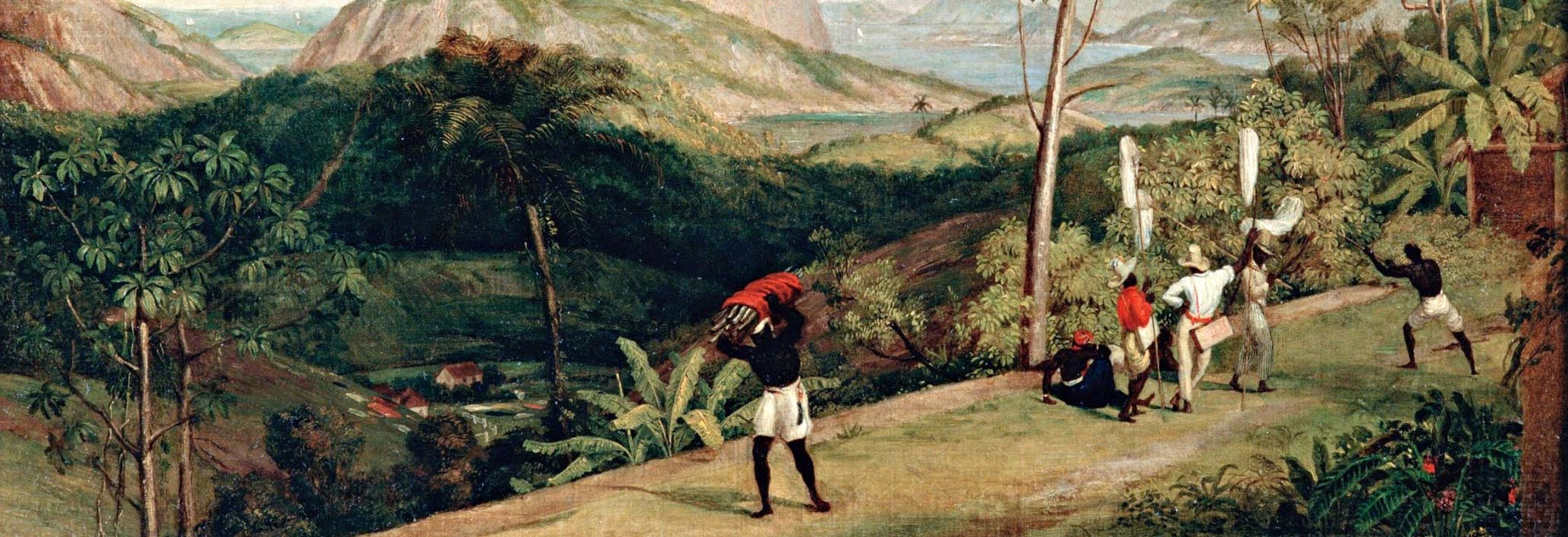Rosa Maria Egipcíaca da Vera Cruz, known as Rosa Egipcíaca, was a slave and later freedwoman, renowned religious mystic and author, and founder of a convent for former prostitutes in colonial Rio de Janeiro.
Rosa was born in what is now Lagos, Nigeria, and arrived in Rio as a six-year-old slave. At age fourteen, she was sold to the Inficcionado mining camp in the gold-prospecting region of Minas Gerais. Rosa lived there for fifteen years as a prostitute.
According to her own testimony to ecclesiastical authorities, at the age of twenty-nine, Rosa was possessed by a demon and received regular exorcisms from Francisco Gonçalves Lopes, a Portuguese priest known as the “scourge of demons.” They developed an intimate bond that led to their denunciation as lovers and prosecution by the Inquisition.
After release, Rosa abandoned prostitution and became a fervent Catholic devotee. She preached to crowds and prophesied the future. This behavior led to her veneration as a saint, even by her own master and his family. She renamed herself Rosa Maria Egipcíaca da Vera Cruz, a name inspired by the famous Egyptian saint, another former prostitute. Presumably, in response to her growing influence over the local Catholic laity, the bishop of Mariana had Rosa severely flogged, resulting in partial paralysis of her right side. After this ordeal, Father Lopes bought and freed her.
The pair moved to Rio de Janeiro, where Rosa’s visions and ecstatic experiences grew more frequent and elaborate, impressing the Franciscan monks and prompting talk of her becoming a model of saintliness for Afro descendants in the empire. During this time, she learned to read and write, thus becoming the first African in Brazil known to not only learn the alphabet but also to have written a book, The Sacred Theology of Love of God Brilliant Light of Pilgrim Souls, of which only six of 290 pages have survived. Rosa also founded the Retreat of Our Lady of Labor for former prostitutes, most of whom were either black or multiracial. Her writings and proclamations made Rosa the main Brazilian exponent of a cult dedicated to worshipping the hearts of Saint Joseph and Christ’s grandparents. Soon, she amassed a core group of followers who began worshipping her person. Her own worship embraced a heterodoxy clearly bordering on heresy, often combining the Catholic liturgy with African practices.
In 1762-3 Rosa and Father Lopes were arrested and tried by the Inquisition. Father Lopes eventually confessed to having been fooled by Rosa’s stories, but Rosa insisted that she never lied or invented anything. The records are incomplete, but she was probably sentenced to be whipped and expelled to Portugal for five years. However, existing information suggests that she stayed on in the household of the Inquisition, working in the kitchen as a servant, where she was found dead on October 12, 1771. According to the Inquisition’s own physician, Rosa died a natural death. Rosa Egipcíaca’s story remained undiscovered until a 1993 biography.
Bibliography
Lisbon Inquisition, Prosecutions nos. 9065 and 18078. Arquivos Nacionais-Torre do Tombo, Lisbon, Portugal.
Mott, Luiz and Daniel de Paula Valentim Hutchins. "Egipcíaca, Rosa." Dictionary of Caribbean and Afro-Latin American Biography , edited by Ed. Franklin W. Knight. , edited by , Henry Louis Gates Jr.. Oxford African American Studies Center, http://www.oxfordaasc.com/article/opr/t456/e718 (accessed Thu Sep 05 12:14:50 EDT 2019).
Mott, Luiz. Rosa Egipcíaca: Uma santa Africana no Brasil. Rio de Janeiro: Bertrand Editors, 1993.
Author
Luiz Mott
Adapted by
James Almeida and Steven J. Niven
Contributing Institutions
Hutchins Center for African & African American Research, Harvard University, Cambridge, MA.
Oxford University Press (USA) African American Studies Center.





